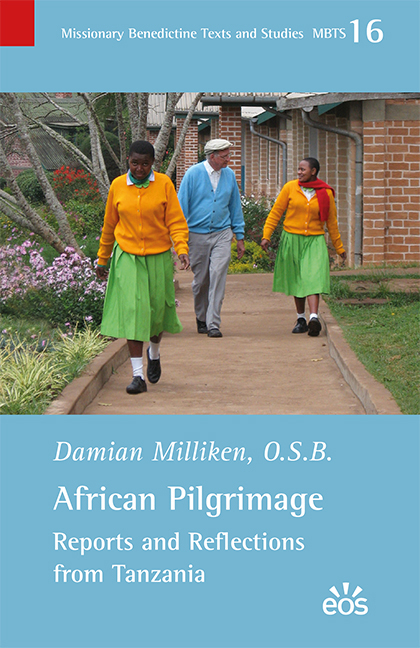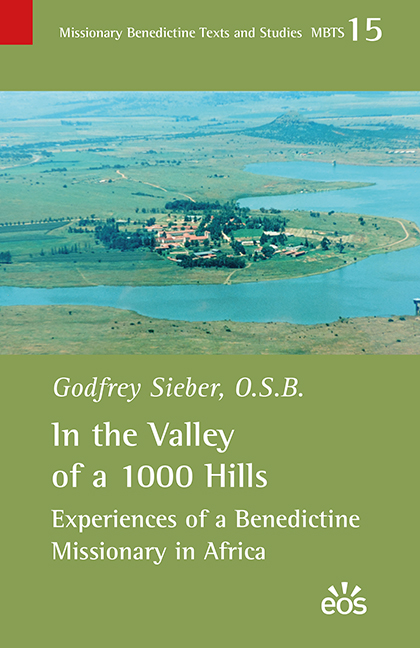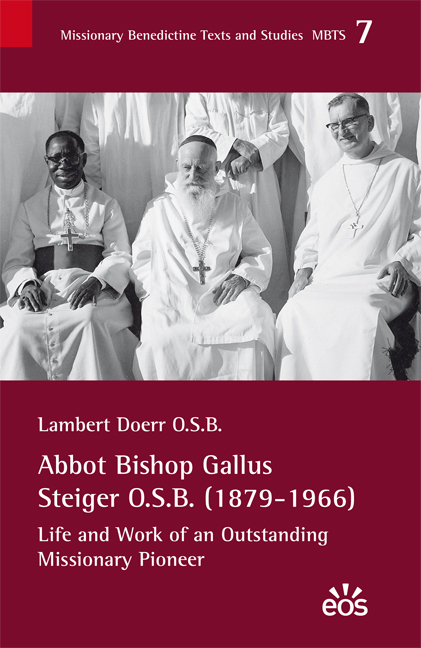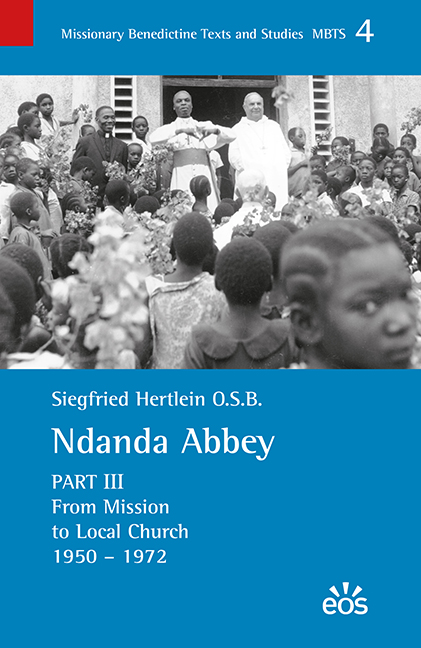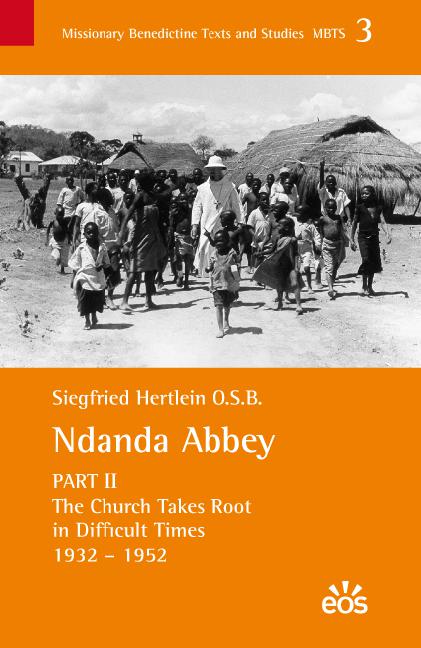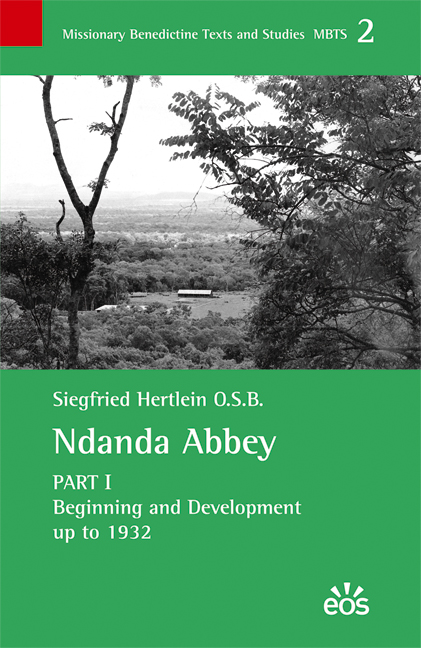Tansania
15
Sieber, GottfriedIn the Valley of a 1000 Hills
Experiences of a Benedictine Missionary in Africa
15
Albert (ed.), Sigrid C.Mission im Krieg
Abt Norbert Webers Reisetagebuch aus Ostafrika 1905
 Cover-Download | Norbert Weber hat in seiner Amtszeit als Erzabt von St. Ottilien (1902 bis 1931) die gerade erst entstandene Klostergemeinschaft auf ihrem Weg zu einer weltweiten Kongregation auf vier Kontinenten geführt. Seine Reisen nach Asien und Afrika verarbeitete er auch literarisch und filmisch, wobei vor allem seine Korea-Dokumentationen bekannt wurden. Bisher noch unveröffentlicht ist sein Reisetagebuch nach Deutsch-Ostafrika aus dem Jahr 1905: Es berichtet aus unmittelbarer Nähe vom Maji-Maji-Krieg gegen die deutsche Kolonialherrschaft und bildet eine lebendige Quelle für Missions- und Kolonialgeschichte.  |
07
Doerr, LambertAbbot Bishop Gallus Steiger O.S.B. (1879-1966)
05
Hertlein, SiegfriedNdanda Abbey, Part IV
The Abbey’s Life with the African Diocese 1973 – 2001
 Cover-Download | In 1963, the Territorial Abbey of Ndanda handed over their former mission territory to the newly erected Mtwara diocese. The agreement between the missionary Benedictines and leadership of the diocese stated that “the missionary priests of the Congregation of St. Ottilien are prepared to co-operate with the African clergy in the ordinary and extraordinary pastoration under the authority of the Bishop. The Missionary brothers will also continue their services for the Diocese.” This forth volume of Ndanda’s widespread history describes the transition period which started under the Abbot Bishop Victor Haelg and continued under Abbot Siegfried Hertlein.  |


